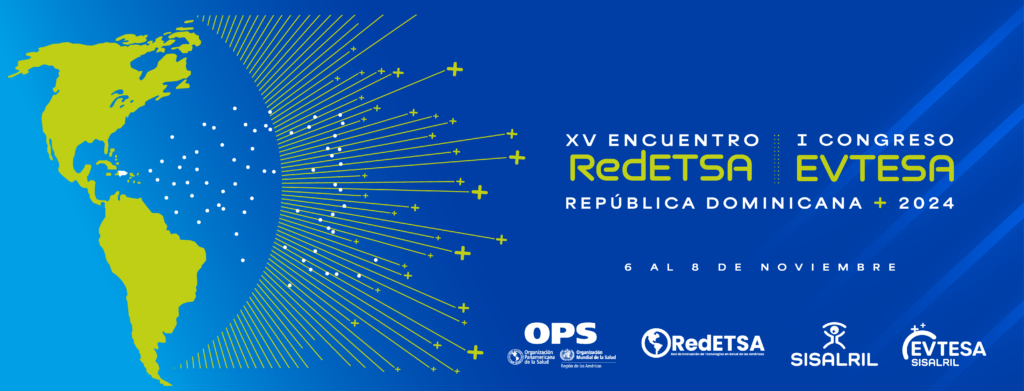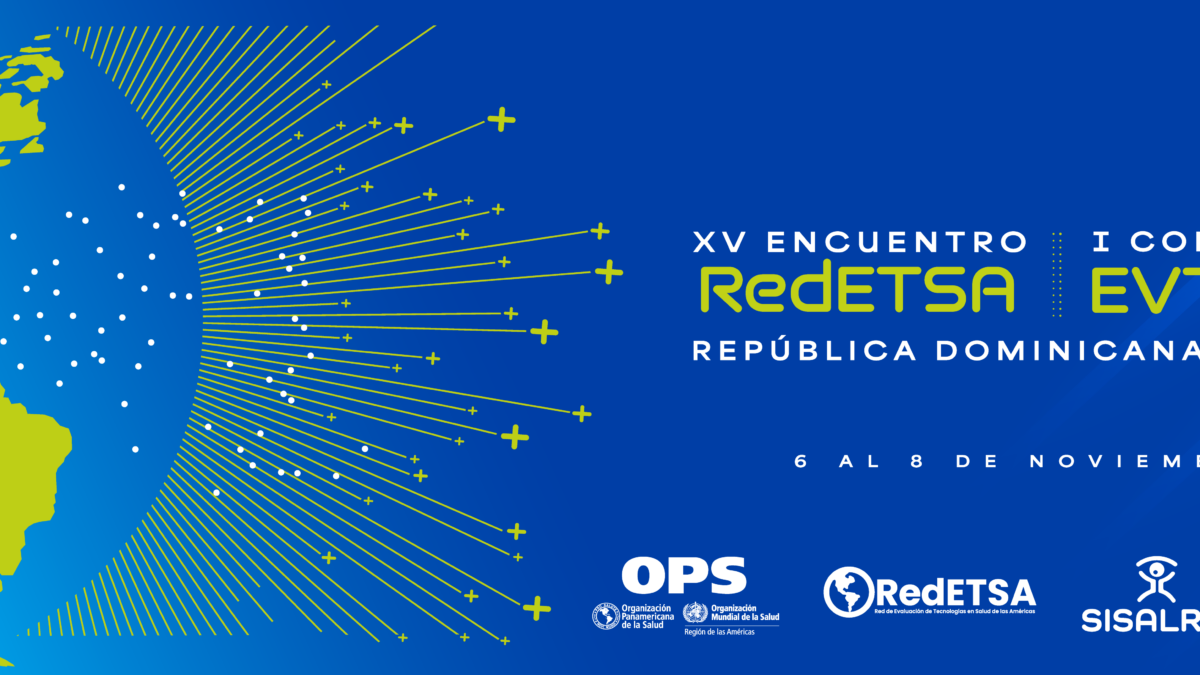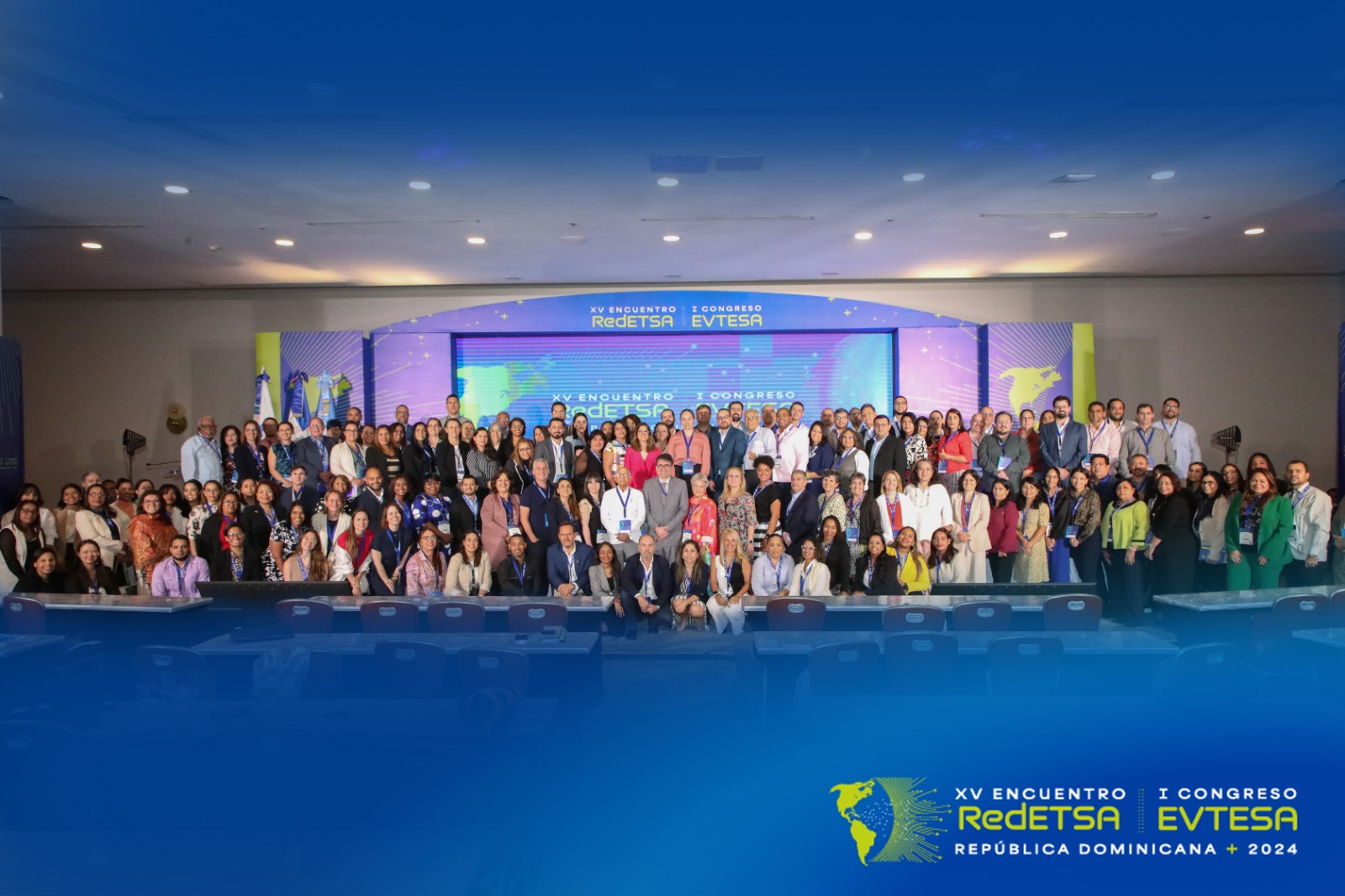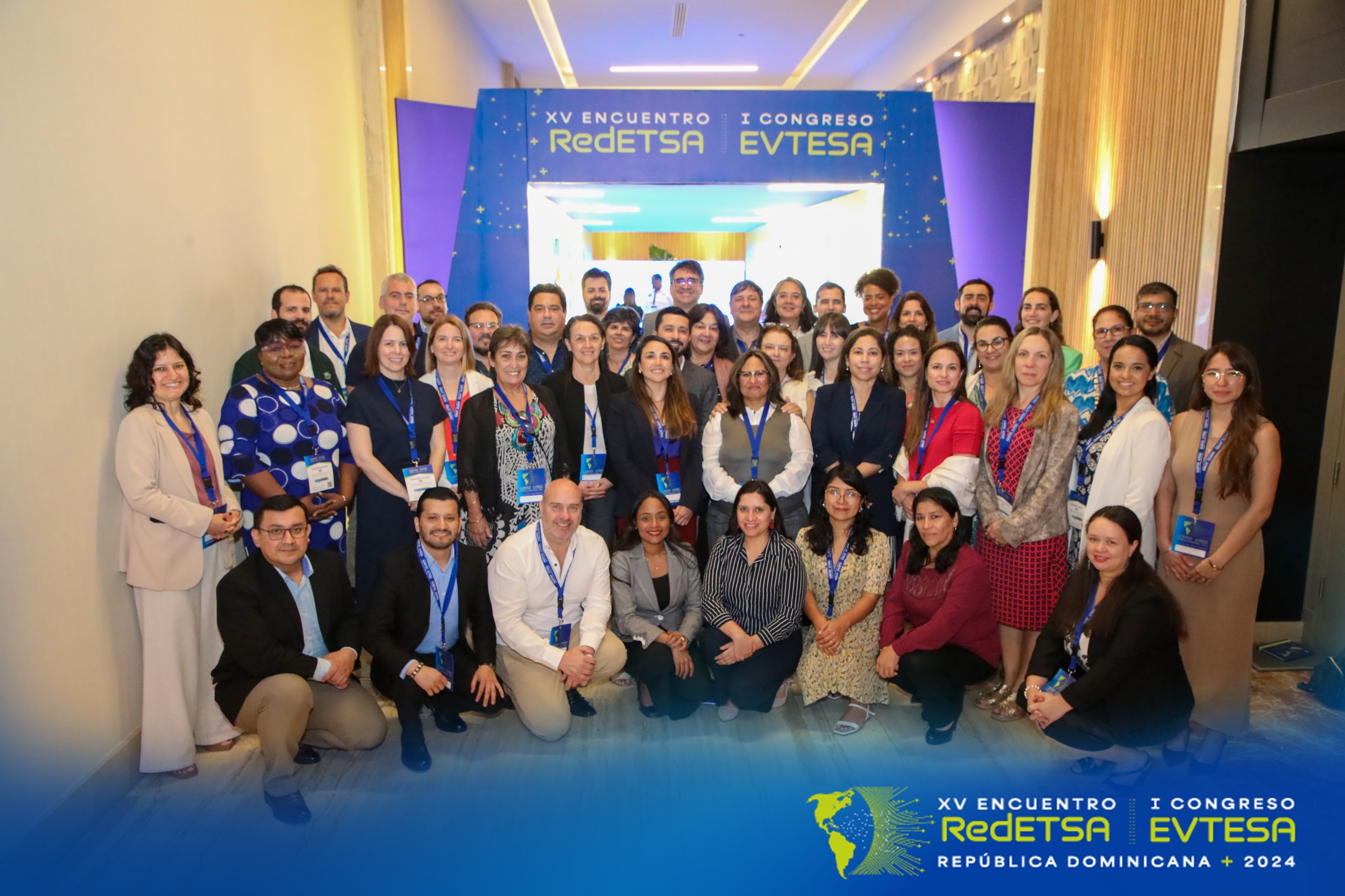
XIII Meeting of the Health Technology Assessment Network of the Americas – November 7 to 9, 2022, Brasilia Brazil –
November 15, 2022
Organization of the meeting
On November 6, 7 and 8, the Pan American Health Organization (PAHO), through its Departments of Innovation, Access to Medicines and Health Technologies (IMT), as Secretariat of the Health Technology Assessment Network of the Americas (RedETSA) carried out the “XV Regional Meeting of RedETSA” in Santo Domingo, Dominican Republic, in conjunction with the 1st EVTESA Congress.
The meeting included an open scientific program on November 6 and 7 with exhibitors from 20 countries, free workshops on the afternoon of November 7 given by specialists who are members of the network and collaborators, on "Equity in HTAs", "Grade Methodology" and "Economic Evaluation", in addition to the annual meeting between RedETSA members, held on November 8. The international event was attended by more than 300 people from 25 countries, who discussed and committed to advancing the institutionalization and strengthening of the HTA process to guarantee access to safe and effective medicines and other health technologies and to collaborate with the sustainability of health systems in our region. The closed meeting of members was attended by 55 people from 19 countries in the region corresponding to 37 RedETSA member institutions, where the main advances and challenges of the member institutions in the institutionalization of HTA, the network activities carried out during 2024 and the 2025 work plan were shared.
The opening of the event The meeting was headed by the Minister of Public Health of the Dominican Republic, Víctor Atallah; the Minister of Labor, Luis Miguel De Camps; the General Manager of the National Council of Social Security (CNSS), Edward Guzmán; and the Superintendent of Health and Labor Risks (SISALRIL) Miguel Ceara Hatton. In addition, the representative of PAHO/WHO in the Dominican Republic, Alba María Ropero Álvarez, and the interim head of the Access to Medicines and Health Technologies Unit of PAHO/WHO, Alexandre Lemgruber.
Central axis and topics discussed
The objective of the meeting was to promote discussion around Health Technology Assessment (HTA) through the exchange of experiences among specialists and managers from the Americas Region. At this event, the fundamental processes related to HTA at different points in the life cycle of a technology were addressed, as well as other relevant key topics.
One of the current challenges facing countries in the Region is the construction of integrated health systems with quality care that are equitable and efficient. In this context, the development of Health Technology Assessment (HTA) is essential for the generation of quality evidence that informs health decision-making as well as its effective implementation and monitoring of compliance. In addition, the links between HTA and decision-making processes are key to generating a real impact on health systems. To date, countries in the Region have established HTA with varying degrees of development and institutionalization.
An effective application of HTA, from an integrated approach that considers the entire life cycle of health technologies, requires that the components associated with the decision-making process – from evaluation to implementation and monitoring of their use – are explicitly integrated and act in a coordinated manner.
General Agenda and Methodology
The 3-day event took place with different working dynamics:
- Wednesday, November 6th and Thursday, November 7th in the morning:Open scientific sessions with different working methods:
- Panels of speakers with subsequent discussion: they addressed a main topic where the speakers developed presentations on more specific topics or experiences from their country, supported by a slide presentation, followed by a space for discussion with questions from the public.
- Short briefings by a single speaker, maximum 30 minutes long, with closing remarks from another expert.
- Round tables on experiences: with the participation of representatives from 4 to 6 institutions moderated by a facilitator who asked specific questions to each country/institution according to the experience to be highlighted on the topic to be discussed in the round table.
- Thursday, November 7th, afternoon: 3 free, open workshops in parallel, each 210 minutes long, given by specialists on the following topics:
- Equity in the processes of evaluation and incorporation of health technologies,
- Economic Evaluation and Budget Impact Analysis, and
- GRADE methodology.
- Friday, November 8:Closed meeting of RedETSA members.
You can consult the complete Agenda of the event by clicking here.
Although it was an in-person event, the open scientific sessions on Tuesday 7 and Wednesday 8 were broadcast live and are available for viewing here:



